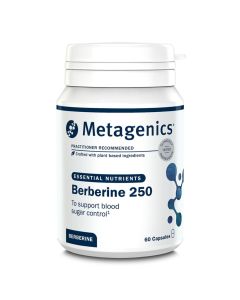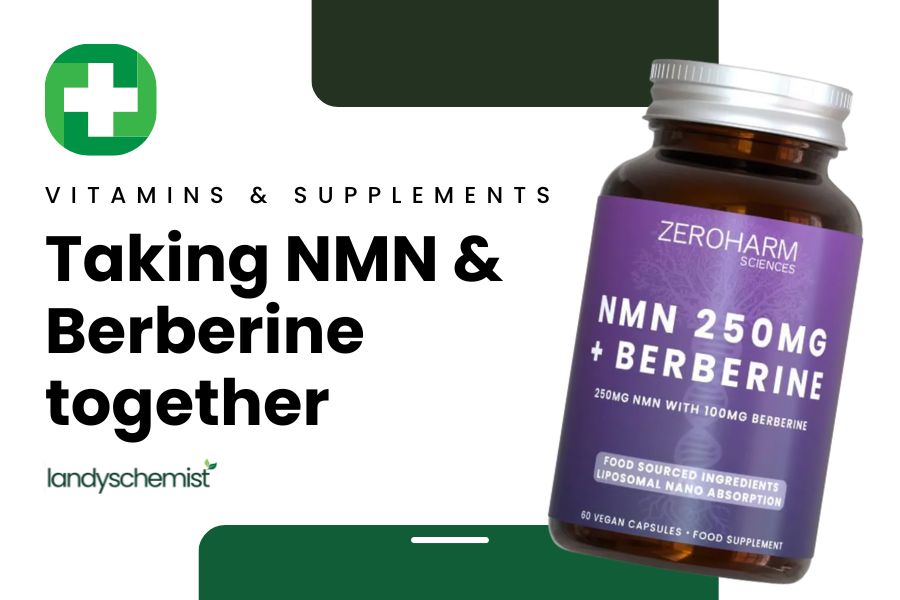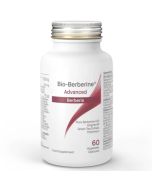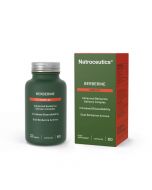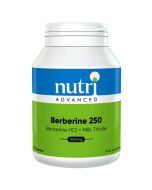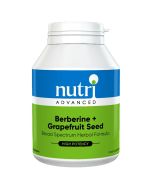
Is Berberine an alternative to Ozempic?
In the world of modern medicine, breakthroughs in pharmaceuticals often revolutionise treatment methods and improve patients' lives.
Ozempic, a prescription medication primarily used to treat type 2 diabetes and obesity, has gained significant interest in recent years due to its effectiveness in managing blood sugar levels and promoting weight loss and weight management. However, amidst the rise of prescription medications, there's a growing interest in natural alternatives that offer similar benefits with fewer side effects. One such contender is berberine, a compound found in various plants such as goldenseal, goldthread, Oregon grape, and may have promising potential in managing diabetes and metabolic health. Could berberine be hailed as "Nature's Ozempic"?
This blog delves deeper into the science behind berberine's therapeutic properties and its potential as a natural alternative to Ozempic.
Read more: The Complete Guide To Berberine: Benefits, Uses, Side Effects, Dosage, Complications
The difference between ozempic and berberine
The way in which ozempic and berberine work in the body are almost non-comparable because they work through different mechanisms. In short, ozempic directly mimics hormones in the body to stimulate the feeling of fullness, whereas berberine does not. Instead berberine may indirectly encourage weight loss through the multiple other effects it has on the body.
Ozempic
Ozempic mimics the effects of GLP-1 hormone (glucagon-like peptide-1 hormone), which is a naturally occurring peptide hormone produced in the intestines to stimulate insulin secretion and reduce glucose production. This hormone plays a crucial role in regulating blood sugar levels and metabolism by helping to slow down gastric emptying, promote feelings of fullness, thus regulating appetite.
Berberine
Berberine indirectly works through various mechanisms in the body which may contribute to weight loss such as improving insulin sensitivity, reducing fat accumulation, and regulating gut microbiota. A study found that berberine enhances how well the body responds to insulin by reducing fat storage and adjusting the levels of certain hormones produced by fat cells in both human fat precursor cells and people with metabolic syndrome.Previous research also indicates that changes in the gut microbiota are environmental factors that affect how prone individuals are to obesity and how much fat they accumulate.
What is a safe berberine dosage?
The optimal dosage of berberine for weight loss can vary depending on factors such as individual health status, age, and specific health goals. However, typical dosages used in clinical studies range from 500 mg to 1500 mg per day, divided into two to three doses taken with meals.
It's essential to start with a lower dose and gradually increase it while monitoring for any potential side effects.
Side effects
Common side effects of Ozempic may include gastrointestinal symptoms like nausea, vomiting, and diarrhoea, as well as injection site reactions. Berberine, on the other hand, may cause gastrointestinal discomfort, such as stomach upset or cramping, and may interact with certain medications or supplements.
Is it safe to switch from ozempic to berberine?
Switching from Ozempic to berberine or any other alternative treatment should always be discussed with your doctor who can provide personalised advice based on your individual health status, medical history, and treatment goals.
It is important to note that while berberine has shown promising effects in managing blood sugar levels and promoting weight loss, it works differently to ozempic and it may not be suitable for everyone and may not offer the same level of efficacy or safety profile as Ozempic.
Recommendations
If you're considering berberine supplementation, we recommend Enzymedica Berberine for its high-quality formulation and flexibility in dosage. Additionally, Enzymedica Berberine Phytosome is a good option due to its enhanced bioavailability, which may improve absorption and effectiveness. Both options offer benefits, but if you're looking for improved absorption and potentially lower doses, Enzymedica Berberine Phytosome may be preferable.
References
- https://pubmed.ncbi.nlm.nih.gov/22474499/
- https://pubmed.ncbi.nlm.nih.gov/37511356/
- https://www.ncbi.nlm.nih.gov/pmc/articles/PMC7933196/
- https://pubmed.ncbi.nlm.nih.gov/15505215/
By Rhysa Phommachanh BA (hons) Specialist Hair and Media Make-up

